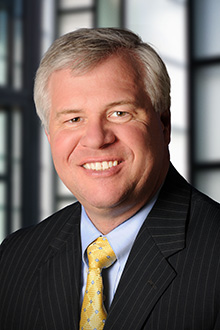Mark Oertel Co-Authors CLM Article on Green Construction Claims
Los Angeles, Calif. (May 22, 2020) - Los Angeles Partner Mark Oertel recently co-authored an article for the Claims and Litigation Management Alliance (CLM) titled “The Unintended Consequences of Going Green,” about the importance of managing building owners’ expectations in order to avoid claims related to “green” construction.
In the article, the authors begin by stating that “green” building, which involves the use of energy saving materials and techniques, has become more mainstream and is even required in certain parts of the country. Acknowledging that the greening of construction is an important ideal, they note that the organization named Leadership in Energy and Environmental Design (LEED) has standardized green building criteria. However, as Mr. Oertel and his co-authors explain, educating building owners about the practical implications of using green products is essential, even when the building at issue has been awarded the highest certification by LEED.
The authors describe that LEED certifications and marketing strategies often create expectations concerning green construction, without accounting for important factors that contribute to the performance of the particular materials involved. To illustrate this point, Mr. Oertel and his co-authors describe a recent claim involving homeowners who installed solar panels on their roof and expected to incur zero energy costs as a result. When their costs remained the same, they threatened litigation against the solar-installation company. An analysis of the homeowners’ energy usage revealed that after the solar panels were installed, the homeowners abandoned their prior energy-saving measures, presumably because they believed that their power would be free. As a result, they ended up using more power and incurring energy costs at a level that they did not expect.
After highlighting the potential impact of homeowners’ behavior, the authors describe additional factors that may similarly affect the energy and cost savings associated with solar panels and other green construction materials. These factors include (1) building location, (2) maintenance, (3) leaks, (4) seismic events, (5) firefighting techniques, (6) product longevity, and (7) a product’s country of origin.
Mr. Oertel and his co-authors close by emphasizing that because “going green is here to stay,” design professionals must educate building owners regarding the implications of using green materials in order to minimize construction litigation. The article states, “Understanding the risks associated with a product’s longevity and installed performance cannot be underestimated. Fail on one of these points, and claims are sure to follow.”
Mr. Oertel is chair of Lewis Brisbois’ Surety and Fidelity Practices. He has more than 30 years of experience in the areas of surety, fidelity, insurance law, professional liability, construction, and commercial disputes. Mr. Oertel recently co-edited a book, titled “Arbitration and the Surety,” for the American Bar Association (ABA), and contributed an article to the book, titled “Proactive Steps: What Steps Can The Surety Take To Minimize The Risk Of Adverse Decisions?”
You can read the full CLM article here.
